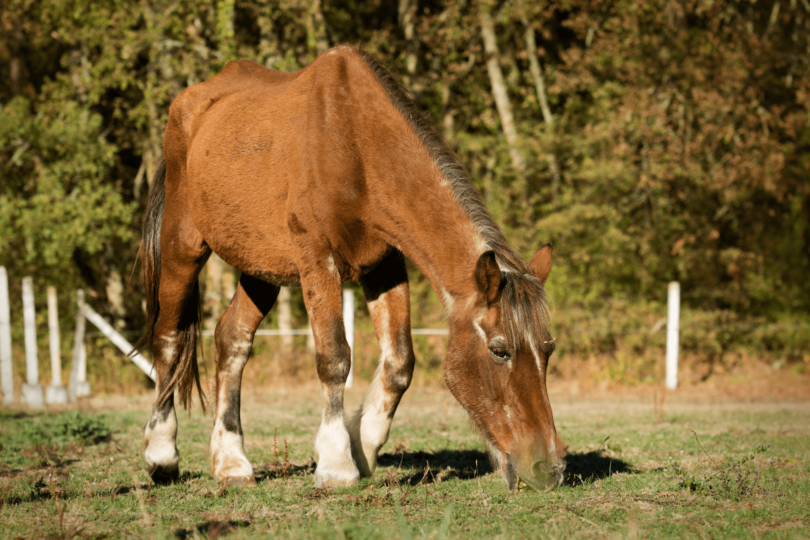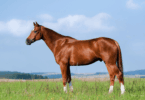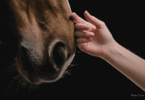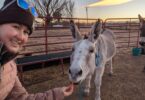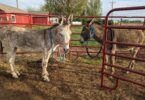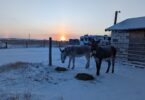Weight gain tips for horses who need to pack on the pounds
Some horses are harder to keep weight on than others. If your horse falls into this category, there are several things you can do to remedy the situation. To begin with, establish a baseline for your horse. Evaluate the current feed and exercise program and understand what is within your ability to control. Identify the root causes and work to balance the horse’s diet with their exercise.
Horses lose weight when they burn more calories than they consume. After ruling out any medical issues, evaluate the diet. The horse may need additional forage, such as hay, a change in grain, or a supplement designed to facilitate weight gain.
Why Do Horses Lose Weight?
Just like people, some horses have faster metabolisms than others. In the equine industry, we have two terms to define either end of the spectrum—the “easy keeper” and the “hard keeper.”
The easy keeper seems to look at a bag of feed and gain weight. It can be a challenge to ensure this horse is getting adequate nutrition–without getting fat.
While the problem may be complex, the math is simple; if your horse burns more calories than are consumed, the result will be weight loss.
The opposite of an easy keeper is a hard keeper. This horse struggles to keep weight on. You may have his diet balanced by the end of the summer only to be dismayed by weight loss over the winter.
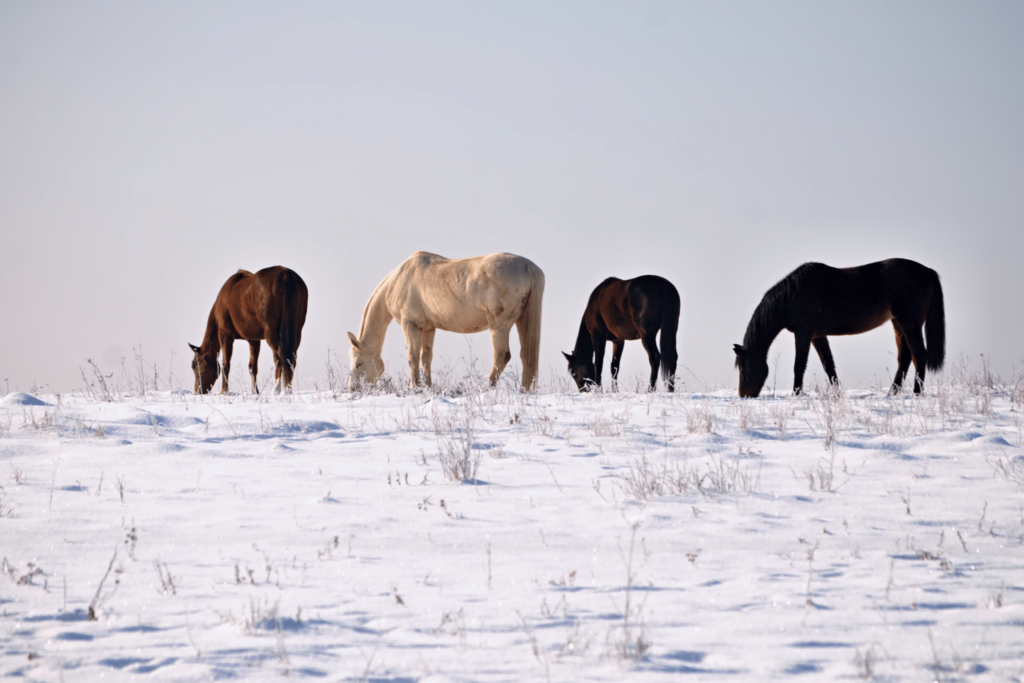
Source: Canva
The hard keeper is especially difficult to manage in a traditional boarding situation where they are only fed twice a day. It can be tough to safely get enough calories in the horse in just two feedings per day. Additionally, the hard keeper can be difficult on the wallet—the more you have to feed, the more it will cost.
Too Little or the Wrong Food
A common mistake is feeding by volume and not weight. For example, if you switch brands of feed but do not weigh the new feed, you may be under or overfeeding. The density of the feed could change so feeding “1 scoop” isn’t the best approach.
Similarly, hay quality can vary between cuttings. If a horse does well on two flakes of hay twice a day, but the hay supply changes to something inferior, that same horse may now need three flakes twice per day to meet their nutritional needs.
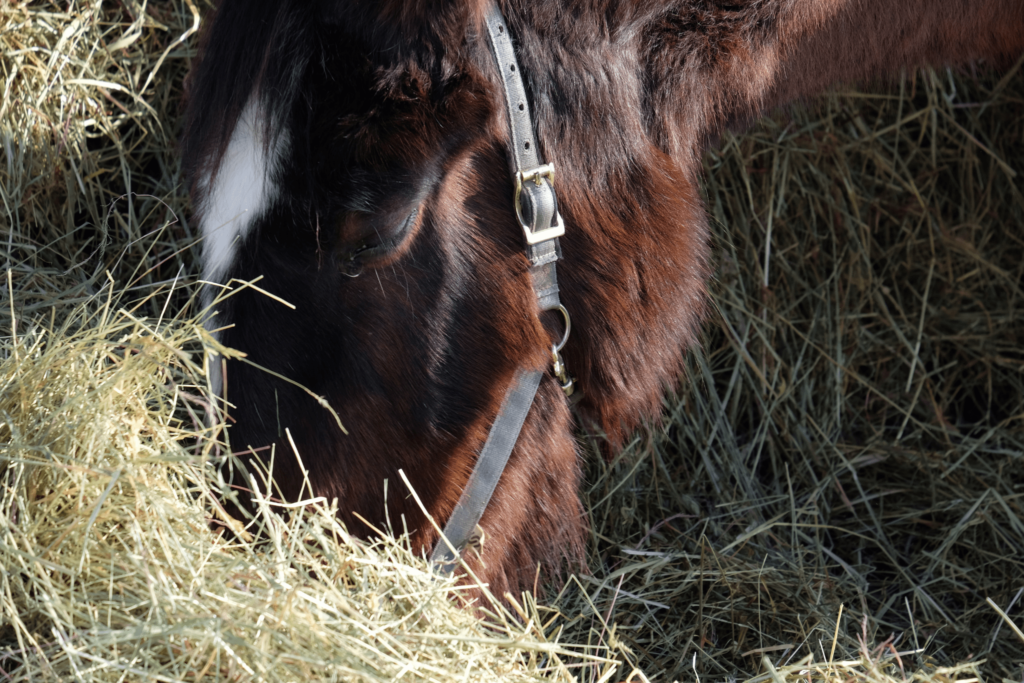
Source: Canva
Too Much Exercise
Extreme changes in exercise, without adjusting the diet, can result in weight loss. A horse that is pulled off pasture and put into training will require additional calories.
If a horse goes from a moderate exercise program to a heavy workload, it will require additional feed. It is always easier to be proactive and make small, gradual adjustments.
Illness or Injury
Generally, illness or injury will cause weight gain, not weight loss. Any time a horse’s workload changes, it is always good to consider the impact on the calories required.
Underweight Horse Problems
Weight loss is a symptom, not a condition. It is important to try to find the underlying cause and address it. Typical causes include dental issues, parasites, or imbalances in the GI tract.
How to Tell if Your Horse is Underweight
Horses are evaluated using a body condition scoring system. This will be a score between 1 and 9: a horse scoring “1” is extremely thin and a “9” is extremely fat. Ideally, your horse should be between a 4 and a 6 depending on breed, type, and discipline.
Getting a Baseline and Setting Goals
It is important to understand where you are starting from and then set realistic goals for progress.
Initially, figure out what your horse’s baseline body condition score is. After you document the baseline, use a weight tape to measure your horse. This will be an objective way to document your horse’s progress.
It can also help to take pictures from the same location and angle to objectively view your horse’s progress over time.
Remember—gradual changes are the healthiest for your horse.
How do you weigh a horse?
The easiest way to weigh a horse is with a livestock-sized scale, but most of us don’t have access to one on a regular basis.
Instead, we can approximate weight using a weight tape. You will use the tape to measure your horse in a variety of places and then calculate their weight based on the measurements. It is surprisingly accurate!
 How long does it take for a horse to gain weight
How long does it take for a horse to gain weight
Always adjust the horse’s diet gradually. That said, if done properly, you may be able to see progress in as little as 1-2 weeks.
The Basics: How to get my horse to gain weight
The best way to get your horse to gain weight is to increase or change the horse’s feed. While exercise is good for horses—in some cases, it may be overdone. In most cases, the best way to address weight gain is via the feeding plan.
Change What or How You Feed
If you have a hard keeper, it can be difficult to safely get enough calories into them in two feedings per day.
If you board your horse and that is your only option, consider coming out to the barn at an “off” time and providing a third meal.
This could mean adding “lunch” for your horse, or if they are fed dinner fairly early, coming out later in the evening for a “bedtime snack.”
I used to feed my Appendix quarter horse a hot alfalfa mash after my evening rides to add calories during the winter months.
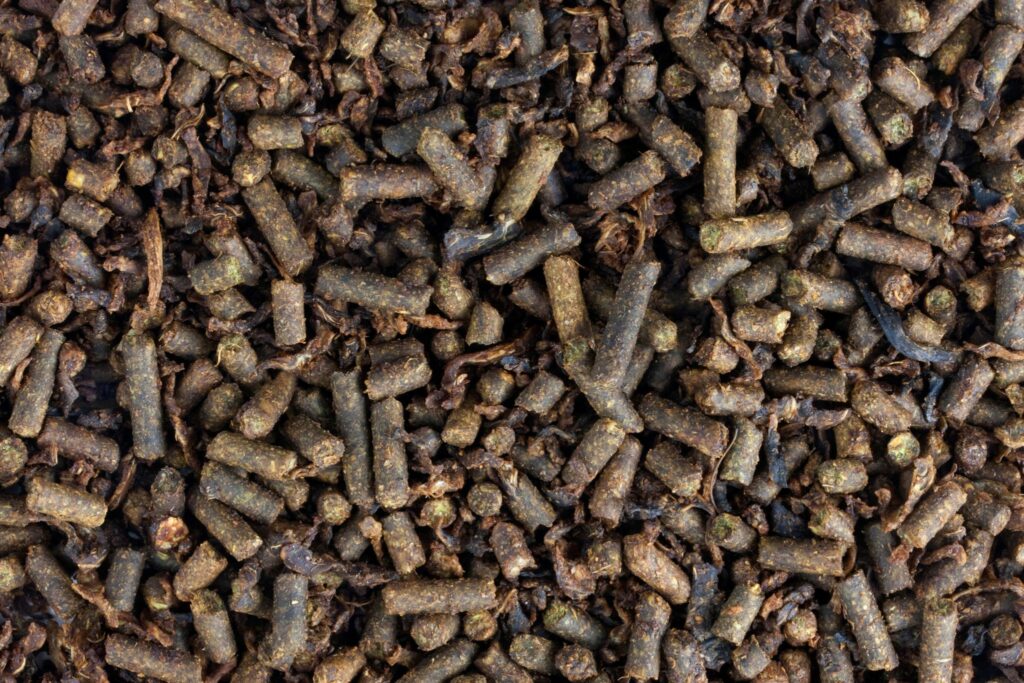
Source: Canva
What to feed an underweight horse
Adding alfalfa hay can be a safe and effective way to add calories and protein to the horse’s diet.
You may also increase the quantity of grain fed, but be sure to follow the specific feed’s instructions.
If you have maxed out the daily grain recommendation on the feed tag, consider adding a topdress supplement for weight gain or switching to a higher calorie/fat grain option.
Also, consider where your horse is looking thin. If the withers look bony and the topline lacks adequate muscling, you will want to add a high-protein topdress feed to address the issue and build muscle. An example would be Empower Topline Balance by Nutrena.
If your horse is thin all over or is showing some ribs, a high-fat supplement will be the best option. This will add coverage to the whole horse, not just the top line. The best feed supplement for this horse would be Empower Boost by Nutrena.
Use Horse Weight Gain Supplements
There are many weight-gain supplements available on the market. Most are designed to be top-dressed over the grain ration. Before selecting a supplement, be sure your horse is getting the proper amount of hay and grain. Supplements are generally expensive.
If you do need a supplement, one example specifically formulated for weight gain is SmartGain by SmartPak.
Change Your Exercise Routine
If a horse is losing weight too quickly, or is seriously underweight, it may be best to back off on any intense exercise until the situation can be brought under control.
Address Underlying Health Issues
Always consult your veterinarian for sudden or unexpected weight loss. Your vet can help rule out internal parasites or a more serious health condition.
The Extremes: Putting Weight on a Starved Horse
Feeding a starved horse is a whole different topic—this should be handled by an equine professional under the supervision of a veterinarian.
Read about how to help horses in need from a veterinarian’s perspective.
The extremely underweight horse will need smaller, more frequent meals throughout the day to maximize weight gain without overloading the digestive system.
The good news? With proper care and attention, even dangerously malnourished horses can be brought back to health.
Frequently Asked Questions
Q: What is the fastest way to put weight on a horse?
High-fat, high-protein grain combined with rich alfalfa hay can quickly put weight on a horse if there is not an underlying medical condition.
Q: Can you ride an underweight horse?
Yes, you may be able to ride an underweight horse, but check with your vet, keep sessions short, and be sure to balance the diet to match exercise.
Consult a trainer or equine professional regarding tack; it is important to ensure a proper saddle fit. Some extra cushion may be required until the horse fills out.
Q: Is it normal for old horses to be skinny?
There are several conditions that may cause an older horse to lose weight. The leading cause is lack of proper dentition—basically, the horse’s teeth wear down as they age and eventually can wear out.
When this happens, a traditional hay-based diet may no longer be appropriate. There are many equine senior feeds with a high enough fiber content to be fed as the sole ration.
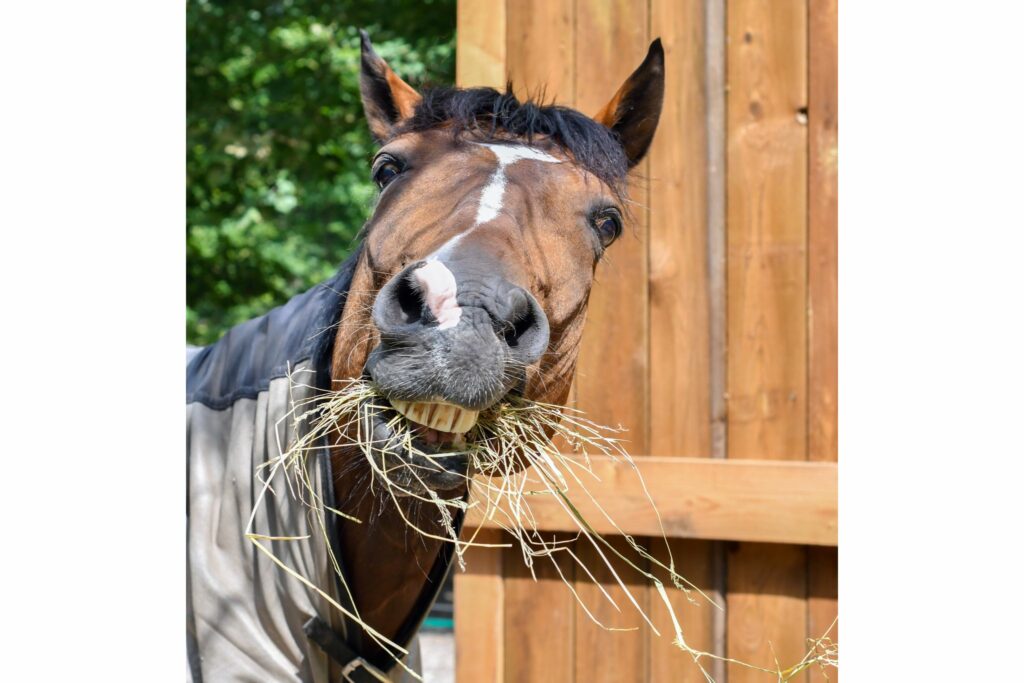
Source: Canva
Q: How do you safely put weight on an older horse?
First, consult your vet. Equine dental problems are more common as the horse ages. It is important to understand any underlying issues to formulate an appropriate diet.
A specially formulated equine senior feed may be the best option for weight gain or even a high-performance feed that is very high in fat.
An equine nutritionist can be a good secondary contact to help determine the most appropriate feed for a specific horse.
Q: What do you feed a horse to put on weight?
Alfalfa contains more calories and protein than grass hays, making it an excellent option if you have an underweight horse. If your horse is wasteful with his hay, alfalfa cubes or pellets might be a more effective way of getting him to gain weight.
Q: What is the best oil to feed horses for weight gain?
Adding oil to the diet can be an inexpensive way to add calories to your horse’s feed. Keep in mind, however, not all oils are created equal.
Canola and soybean oil are superior to corn oil, for example. Be sure to make changes to the diet very slowly so the digestive system has time to adjust.
A good rule of thumb is to feed no more than 100 ml of oil per 100 kg of body weight (yes, sorry—some metric math is needed for those of us that live in the USA). To make it a little easier, this would max out at 2 cups of oil per day for a horse that weighs 1,200 lbs.
Q: How long does it take for a horse to gain weight?
You can start to see a difference in anywhere from two to four months, depending on why the horse lost weight in the first place. If his sickness is severe or if the horse is old, it could take longer, perhaps six months to a year.
Putting on weight is also about building muscle. Just feeding your horse lots of food alone won’t do the trick.
Once the horse is out of danger, add in some light exercise (walking on a lunge line for 10-15 minutes is a great place to start). This will help your horse gain muscle and can speed up the weight-gain process.
Q: How much weight can a horse gain in a day?
Despite their immense size, most horses can only gain about half a pound to a pound of weight per day. It’s safest for a horse to gain weight slowly, so this speed, which seems glacial, is actually beneficial.
If you’re trying to help your horse gain weight, offer free access to forage. Putting a half-ton condensed hay block in a field is a great place to start. You can also add soaked alfalfa cubes or beet pulp to his grain. Choose a feed high in fat and protein, and supplement it with oil as needed.
Q: What does it mean if your horse is a hard keeper?
A hard keeper, also known as a poor doer, is a naturally lean animal that struggles to keep weight on, loses weight easily, and has problems gaining weight.
Q: What is the best diet for a hard-keeper horse?
A hard keeper will do better on a diet that contains alfalfa rather than grass hay. Fed at a rate of 2% of your horse’s body weight per day, alfalfa can help the hard keeper maintain weight, and even gain it.
You should also add some fat to your horse’s diet, in the form of vegetable oil or other feeds that are high in fat, such as flax seed or rice bran.
Also look out for a balanced grain feed that contains corn or oats, as these contain carbohydrates that will boost your horse’s dietary energy consumption.
Q: How do you put weight on a laminitic horse?
Laminitic horses need a low-sugar diet, so a hay replacer that’s low in sugar and starch can work well for a horse at risk of founder.
Sugar beet can also be added to their diet as this is low in sugar, and you can reduce the sugar content further by rinsing and draining the beet before feeding.
Parting Thoughts
It can be tough to figure out the best feeding plan for a hard keeper, but understanding the basics is a good starting point. Consult your vet to rule out any underlying medical conditions.
Remember to make any changes to your feeding program gradually to give your horse time to adjust. There are a lot of great products formulated to feed the hard keeper; in most cases, you should be able to address the problem and see results in as little as a few weeks.
P.S. Enjoy this article? Trot on over to:
- The Biggest Loser: Horse Weight Loss Guide for Beginners
- Tips & Tricks: How to Help Senior Horses Gain Weight
- Towering Horses: 5 Best Breeds for Tall Riders
- How to Weigh a Horse (Easy Step-by-Step Guide)
- How much does a horse weigh? (Fun facts, calculator, FAQs)
- 7 Biggest & Burliest Horse Breeds in the World
- Why (Good) Horseshoes Don’t Hurt Horses
- Food or Foe: What Do Horses Eat (And Why)?
- Elevate Your Ride: 6 Tall Horse Breeds
- New Baby Nutrition: Best Feed for Healthy Foals
- Solving the Senior Horse Feed Equation (Supplements, Hay, Grain, etc.)
Sources/References:
- https://ker.com/equinews/feeding-oil-horses-choose-wisely/
- https://www.nutrenaworld.com/empower-supplements/
- https://www.smartpakequine.com/horse-weight-gain-and-muscle-supplements-10pc

